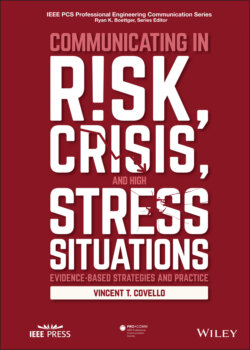Читать книгу Communicating in Risk, Crisis, and High Stress Situations: Evidence-Based Strategies and Practice - Vincent T. Covello - Страница 83
4.2.3 Historical Phase 3: Stakeholder Engagement
ОглавлениеPhase 3 covers the period from the mid‐1990s onward. Researchers and decision‐makers shifted focus to consensus building; meaningful interaction with stakeholders; social and cultural factors influencing risk perceptions; and how trust can be built, maintained, or repaired through constructive dialog. Frequent beginning observations about trust in Phase 3 research include: Trust is situation specific and difficult to achieve. Trust accumulates and deposits over time in trust “accounts” that are based on words, interactions, relationships, and responsible actions. Trust is hard to gain and easy to lose. The importance of trust varies by hazard and respondent group.
Leiss’s Phase 3 corresponds to Fischhoff’s Stages 7 and 8. Leiss points out that each phase emerged in response to the earlier one. The earlier ones do not become irrelevant; instead, they are incorporated into the later phases. Each has value.
